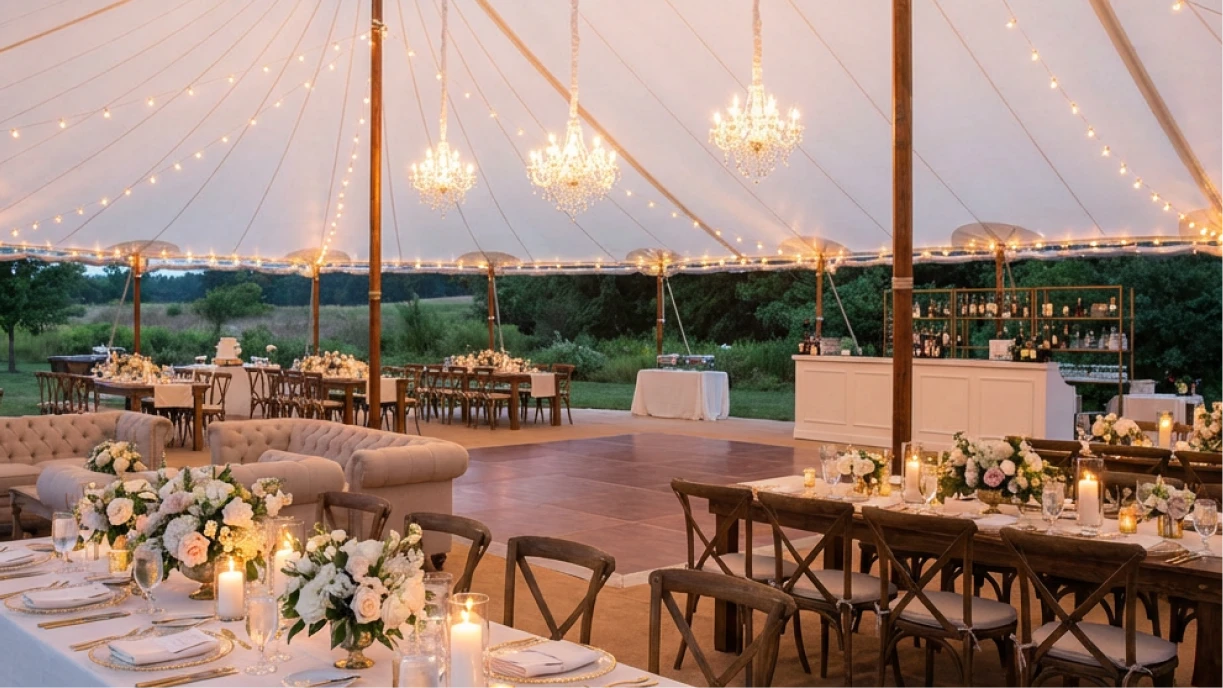Rarely has the event industry faced such a precarious outlook. Almost 12 months from the beginning of the coronavirus pandemic, much of the world is still in a state of lockdown, with social mingling forbidden unless absolutely required. However, with different vaccines being brought to market, there is hope that this year we will get a pharmaceutical bingo bonus to help things get back to normal. Here are five 2021 event industry trends that can help the industry get back on its feet and prosper in the coming year.
1. Cap Event Density
If live events are to continue, they will have to be short, small in scale, and local. This will limit the chance of transferring COVID-19 in a smaller movement radius. Virus transmission is, by definition, at odds with the very philosophy of the event industry. Concentrating on fine-tuning the scale of events can help limit liability and exposure of attendees while helping to fundamentally justify the execution of an event in the first place. Some things to consider include:
● Lowering headcount: Virus transmission jumps exponentially with exposure to more people, so scaling down the upper limit for attendees is the first and best way you can reduce danger.
● Upscale Venue Sizes: In accompaniment with the last point, increasing the size of a venue can allow people to socially distance and reduce the likelihood of transmission.
● Layer Safety Measures: This goes without saying, but taking practical steps to help reduce the minute-to-minute chances for transmission should be pursued at all times. This should include mandatory wearing of face masks and providing suitable hand sanitizing stations. You could even screen attendees by temperature upon their arrival.
2. Prioritize Emotion Before Experience
Maintaining the interest of your guests is one of the biggest challenges faced by event planners, and that goes doubly for virtual and remote event organizing. If we acknowledge the limits of the virtual events like a free spins no deposit UK conference, we can start using the tools in front of us to make the format more compelling. The event industry trend that is the simplest way to do this is by engaging your attendee’s emotions. If you provide content that resonates on an emotional level, people will listen. Put people and purpose at the front of the event industry while allowing attendees to participate to feel more invested in proceedings.
3. Experiment With New Formats
Virtual events give planners the chance to upturn the event industry status quo, and the introduction of hybrid events is likely to present some dynamic opportunities to innovate the form of the live event. Using a mixture of live and on-demand content can tailor an attendee’s experience and utilize digital event recording formats to use taster events to help boost audience engagement. Challenge your attendees to participate, and break up the flow and format of your event to keep things fresh and interesting.
4. Set Your Own Rules and Enforce Them
Security and safety procedure has always been a core concern of the event industry, but with COVID-19, management liability is a bigger concern than ever before. Many in event engagement are discovering that, even with safety protocols in place, attendee compliance can be very low. The challenge for event organizers is not just to have safety measures in place, but also to assure attendees that these rules are being enforced. If people arrive to find that your protocols are being broken without consequence, then you have failed in your duty to your guests. Once you set rules, ensure that you have the resources, manpower, and event technology in place to enforce them.
The Event Industry Must Rise to the Challenge
The uncertainty of 2020 is sure to continue in the coming year, and many event planners feel a sense of uncertainty about the future. Livelihoods are at risk, but the social and economic need for people to connect is more powerful today than ever. It falls to everybody in the event industry to dig deep and respond to these challenges, in the knowledge that a better tomorrow will be coming, and hopefully sooner than later. The event industry trends of 2021 embody this sentiment. What tactic have you employed to help navigate the changes the event industry is facing?
Want more tips on strategy, trends, and best practices delivered straight to your inbox?
{{cta(‘3b197555-83cd-4c4f-879e-c3853a2272b7′,’justifycenter’)}}






